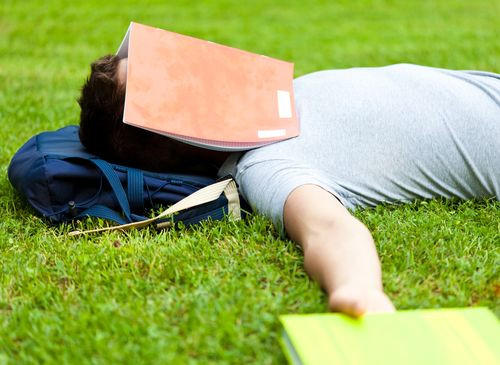Teens Missing Out On Sleep Are 20% More Likely To Be Obese By 21; Getting 9 Hours Rest Is Key To Better Health

Any teens not getting their recommended nine-and-a-quarter hours of sleep each night, which one study found is a whopping 85 percent, are in danger of growing up obese, according to a new study published in the Journal of Pediatrics.
Obesity is one of the many growing health concerns associated with insufficient sleep. And with specific regard to teens, researchers from Colombia University and the University of North Carolina found teens that don’t get sufficient sleep at age 16 are 20 percent more likely to be obese by age 21. Researchers arrived at their conclusion after analyzing the data of 10,000 teens aged 16 and 21 already participating in the National Longitudinal Study of Adolescent Health, which involved taking down their height and weight twice throughout the study’s total duration.
"Lack of sleep in your teenage years can stack the deck against you for obesity later in life," said Shakira F. Suglia, lead study author and an assistant professor of epidemiology at the Columbia University Mailman School of Public Health, in a press release. "Once you're an obese adult, it is much harder to lose weight and keep it off. And the longer you are obese, the greater risk for health problems like heart disease, diabetes, and cancer.”
Though this study does not find a direct connection between sleeplessness and obesity, it does make a case for teen parents to make quality sleep a priority. Daytime sleepiness and fatigue can negatively influence a person’s diet, stimulating cravings and prompting teens to order high-calorie food.
In addition to obesity, insufficient sleep is a gateway to insomnia, which one study from the University of Adelaide in Australia found 11 percent of teen aged 13 to 16 to suffer from. Insomnia has been linked to an increased risk for depression and anxiety disorders.
"Based on our evidence, we believe that prevention and treatment efforts for insomnia and depression should consider this combination of mental health, sleep, and [more evening activity], in addition to current mainstream behavioral approaches,” said Pasquale Alvaro, a Ph.D. candidate for Adelaide’s School of Psychology, in a separate press release. “Prevention and treatment efforts for anxiety subtypes should also consider focusing on insomnia and depression."
Helping teens adopt a healthier sleep schedule doesn't only benefit their health, but their academic performance too. Research published in the Journal of Adolescent Health found young night owls tend to have lower GPAs and are more vulnerable to that teen drama so many of us were happy to leave behind compared to those who get proper sleep.
Don't know where to start? Consider these science-backed sleep hacks teens and adults can both put to good use.
Source: Suglia S, Kara S, Robinson W. Sleep Duration and Obesity among Adolescents Transitioning to Adulthood: Do Results Differ by Sex? The Journal of Pediatrics. 2014.



























